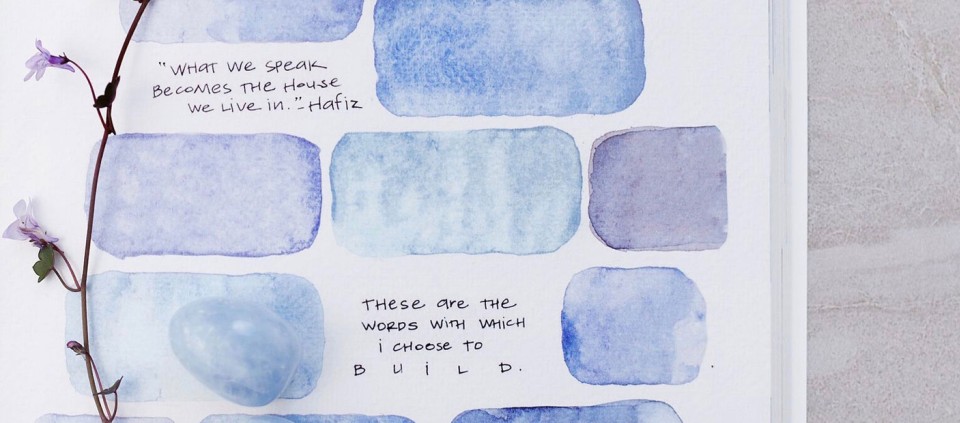Practice You: Journaling Your Life

The walls were blue, with ornate red and pink flowers, but it wasn’t wallpaper. It was fabric, and the fabric had padding beneath it, plush and comfortable to the touch. I was on my childhood bed, canopy above me, heart full of longing to belong. Propped up on my elbows, leaning on that soft wall with the side of my head, I’d been writing till my hand hurt, scratching pen to paper in my little pink diary with the lock, tears streaming down my face.
I remember devising half-truthful, half-fictional stories about my dear (imagined) friends, glamorous and exceptionally pretty, who loved me, and listened to me, and thought me extraordinary. I wrote about my family, pretending things were pristinely peaceful and calm. I wrote about the boy I liked at the time, hoping he’d see beneath my glasses and my skinny legs to my profound little heart.
Journaling has granted me comfort for as long as I can remember. Even in the darkest nights of my soul, when the words eluded me, I’d copy others’ poems into my notebook for solace and guidance. Journaling has been my practice, the pages hold my prayers, and when I’ve had soul-stirring questions, my journals grant me at least partial answers, written by my past self to my present self.
As a teen, I wrote about wanting to die, feeling so alone, "knowing" that it wouldn’t matter if I continued to exist. I remember the color of the sadness. Seeing those words now helps me be more sensitive to my son, and also to the moms I work with who share their teenaged girls’ troubles, sorrows, questionable choices. While many of us may associate journaling only with the angst of our challenging teenage years, research suggests that journaling is actually beneficial for our health at every age.
University of Texas at Austin psychologist and researcher James Pennebaker contends that regular journaling strengthens immune cells, called T-lymphocytes, and decreases symptoms of asthma and rheumatoid arthritis. Writing about stressful events helps you come to terms with them, thus reducing the impact of these stressors on your physical health.
As an adult, I’ve learned that writing our hearts, our issues, and our fears helps to move them a bit farther away from us and onto the page, giving us perspective and range from which to manage those seemingly deep-seated emotional negativities and see them as states rather than eternities. Journaling offers the gift of witness consciousness, the state of self-observation palpable in moments of meditation, when there’s only the breathing, listening, and noticing. Journaling enhances meditation by clearing the field of my consciousness so my intuition can sing to me.
Journaling grants me access to my own innermost teacher, to the wisdom that for years had seemed unattainable, inaccessible. My journals remind me that I’ve always been praying. Torn, folded, spilled on, wrinkled, those books invite me to keep reading and writing them. They ask me to continue integrating my studies and understandings, mitigating the confusions, and navigating the coincidences and celebrations. Here’s to your writing and revisiting, your understanding and your forgiveness.
Find out about upcoming programs with Elena Brower at Kripalu.
This essay was originally published on Elena's website.
Elena Brower, mother, author, yoga teacher, and speaker, is recognized internationally for her expertise in offering practices to approach the world with realistic reverence.
Full Bio and Programs